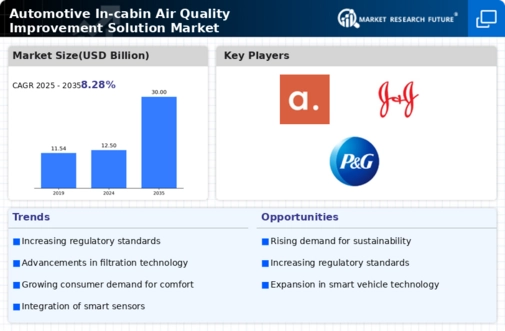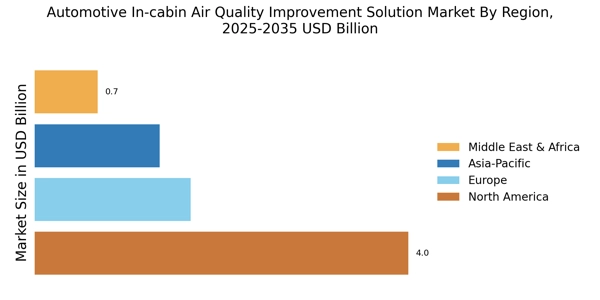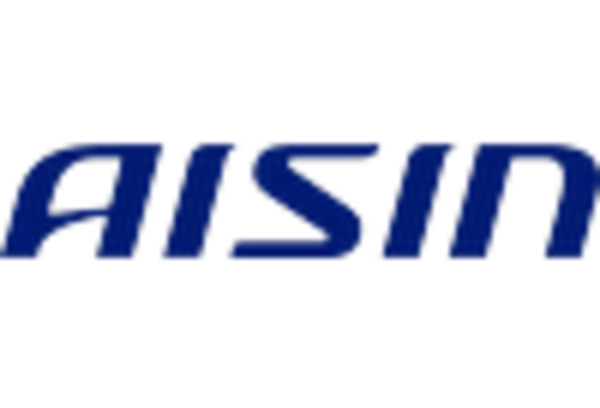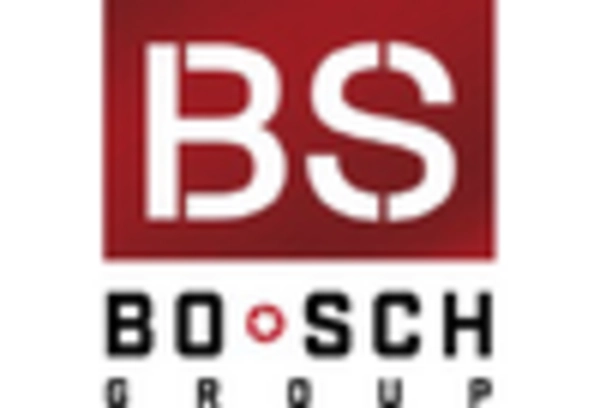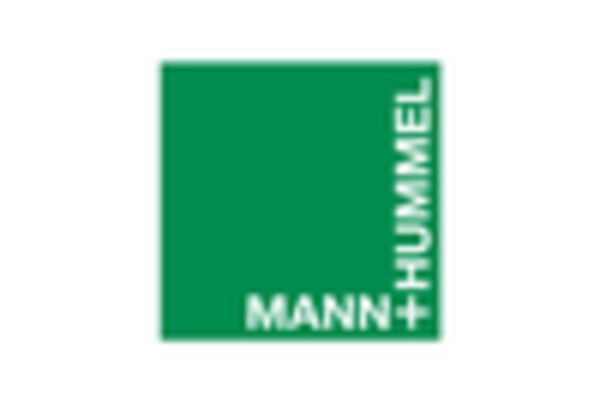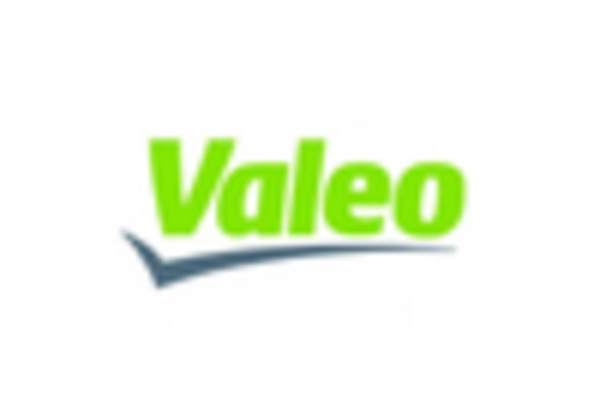Integration of Smart Technologies
The integration of smart technologies into the Automotive In-cabin Air Quality Improvement Solution Market is emerging as a key driver of growth. With the advent of the Internet of Things (IoT), vehicles are becoming increasingly connected, allowing for real-time monitoring and management of air quality. Smart sensors can detect pollutants and automatically adjust filtration systems to maintain optimal air conditions within the cabin. This technological advancement not only enhances user experience but also promotes healthier driving environments. As consumers demand more intelligent and responsive vehicle features, the market for smart air quality solutions is expected to expand significantly. Projections suggest that by 2030, the market could see a valuation exceeding 6 billion USD, driven by the increasing adoption of smart automotive technologies.
Regulatory Standards and Compliance
The Automotive In-cabin Air Quality Improvement Solution Market is significantly influenced by regulatory standards aimed at improving air quality within vehicles. Governments and regulatory bodies are implementing stringent guidelines to ensure that automotive manufacturers adhere to specific air quality benchmarks. These regulations often mandate the inclusion of effective air filtration systems in new vehicle models, thereby driving the demand for innovative air quality solutions. As compliance becomes a necessity, manufacturers are compelled to invest in advanced technologies that not only meet but exceed these standards. This regulatory push is likely to propel the market forward, with an anticipated growth rate of around 7% annually as companies strive to align with evolving air quality regulations.
Consumer Awareness and Health Concerns
Growing consumer awareness regarding the health impacts of in-cabin air quality is a pivotal driver for the Automotive In-cabin Air Quality Improvement Solution Market. Studies have shown that poor air quality can lead to respiratory issues and other health problems, prompting consumers to seek vehicles equipped with advanced air purification systems. This heightened awareness is influencing purchasing decisions, as buyers increasingly prioritize air quality features in their vehicles. Consequently, automotive manufacturers are responding by incorporating sophisticated air quality improvement solutions into their designs. The market is expected to witness a significant increase in demand, with projections indicating a potential market size expansion to over 5 billion USD by 2030, reflecting the importance of health-conscious consumer behavior.
Sustainability Trends in Automotive Manufacturing
Sustainability trends are reshaping the Automotive In-cabin Air Quality Improvement Solution Market, as manufacturers increasingly focus on eco-friendly materials and processes. The integration of sustainable practices in vehicle production is not only beneficial for the environment but also enhances the appeal of vehicles to environmentally conscious consumers. This shift towards sustainability includes the use of biodegradable materials in air filtration systems and the development of energy-efficient air quality solutions. As a result, the market is likely to see a rise in demand for products that align with these sustainability goals. Analysts predict that the market for sustainable automotive solutions could reach approximately 4 billion USD by 2028, reflecting a growing commitment to environmental stewardship within the automotive sector.
Technological Innovations in Air Quality Solutions
The Automotive In-cabin Air Quality Improvement Solution Market is experiencing a surge in technological innovations, particularly in advanced filtration systems. These systems utilize HEPA filters and activated carbon to effectively remove particulate matter and volatile organic compounds from the cabin air. As consumers become increasingly aware of the health implications associated with poor air quality, manufacturers are investing in research and development to enhance these technologies. The market for air quality improvement solutions is projected to grow at a compound annual growth rate of approximately 8% over the next five years, driven by the demand for cleaner air in vehicles. This trend indicates a shift towards integrating smart technologies that monitor and adjust air quality in real-time, thereby enhancing the overall driving experience.


